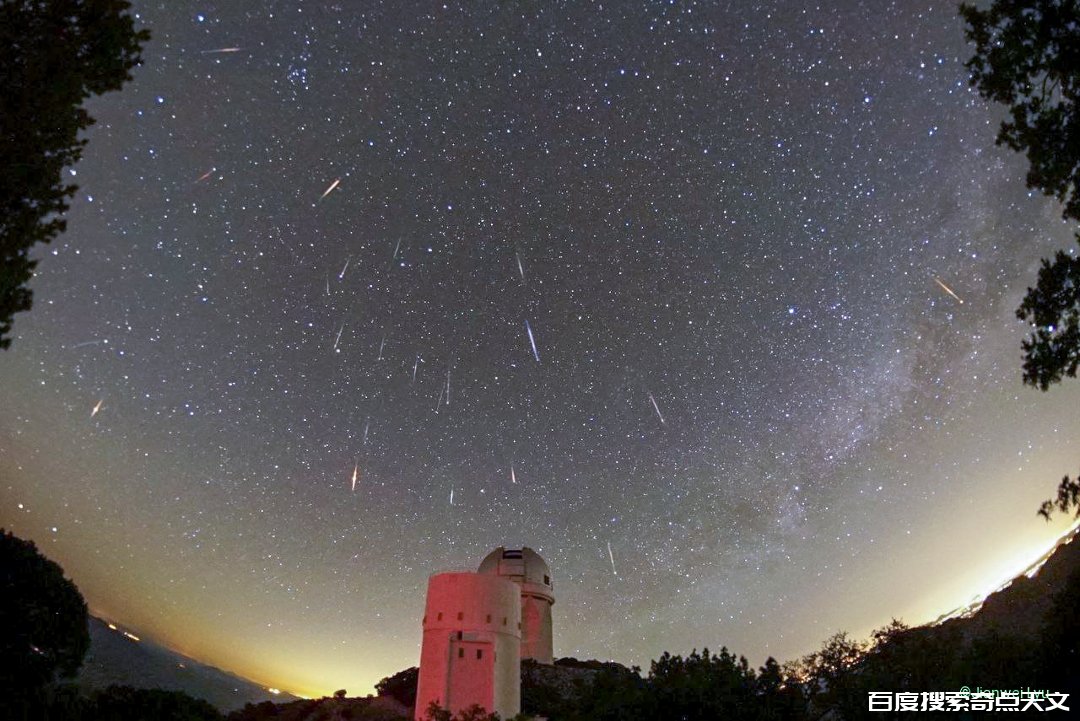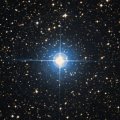
基特峰望远镜上方的武仙T流星

Tau Herculids Meteors over Kitt Peak Telescopes
Image Credit & Copyright: Jianwei Lyu (Steward Obs., U. Arizona)
Explanation: It wasn’t the storm of the century — but it was a night to remember. Last night was the peak of the Tau Herculids meteor shower, a usually modest dribble of occasional meteors originating from the disintegrating Comet 73P/Schwassmann-Wachmann 3. This year, calculations showed that the Earth might be passing through a particularly dense stream of comet debris — at best creating a storm of bright meteors streaking out from the constellation of Hercules. What actually happened fell short of a meteor storm, but could be called a decent meteor shower. Featured here is a composite image taken at Kitt Peak National Observatory in Arizona, USA accumulated over 2.5 hours very late on May 30. Over that time, 19 Tau Herculids meteors were captured, along with 4 unrelated meteors. (Can you find them?) In the near foreground is the Bok 2.3-meter Telescope with the 4.0-meter Mayall Telescope just behind it. Next year, the annual Tau Herculids are expected to return to its normal low rate, with the next active night forecast for 2049.
Tomorrow’s picture: open space
基特峰望远镜上方的武仙T流星
影像提供与版权: Jianwei Lyu (Steward Obs., U. Arizona)
说明: 它没出现世纪流星暴,但仍然是值得铭记的夜晚。昨晚是武仙T流星雨的极大期,而这群通常低活跃的流星雨之源头,为碎裂的周期彗星73P/Schwassmann-Wachmann 3(彗星施瓦斯曼-瓦赫曼3)。今年的计算认为,地球或许会穿过特别密集的彗星碎片流,在最佳状况下,可能会产生明亮的武仙座流星暴。实际发生的,算不上是流星暴,但仍是一场蛮像样的流星雨。这幅组合主题影像,呈现5月30日清晨的2.5小时期间,美国亚利桑那州基特峰国家天文台上空的景观。在那段期间,共记录了19颗武仙流星和4颗无关的流星(你认得出吗?)。影像较近处的前景,为2.3米口径的Bok望远镜及其后方的4米口径Mayall望远镜。明年的武仙T流星雨预期会回到正常的低活跃状态,而下次的爆发预计会在2049年。
明日的图片: open space


